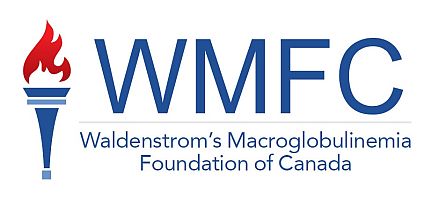Breakthrough research by Dr. Zachary Hunter of the Dana-Farber Cancer Institute in Boston, funded by donations to the IWMF and the WMFC
A much more detailed and nuanced understanding of the biology of Waldenstrom’s Macroglobulinemia has emerged from research funded by WMFC donors.
The study by Dr. Zachary Hunter of the Dana-Farber Cancer Institute in Boston is a very sophisticated search for new research directions — “Multiomic Analysis of DNA, RNA and Epigenomic Networks in WM”.
To conduct a multiomic analysis Dr. Hunter’s research group combined a very broad range of data from various sources; clinical data, mutation studies, gene expression, DNA expression and bone marrow pathology. These areas of cellular study are the ‘omes’, genomes and epigenomes for instance.
Combining data from these ‘omes’, researchers then analyzed these large and complex biological datasets to find novel associations between biological entities, pinpoint relevant biomarkers and build elaborate markers of disease and physiology.
This holistic look at WM data has proven to be very fruitful. The study has identified three subtypes of WM and researchers are studying what makes them different genetically and clinically. Dr. Hunter’s group is also working to develop simple diagnostic tests that will allow these findings to be used in the clinic.
Additionally the study resulted in the development of cell signaling network models to demonstrate how cell signaling networks change with the progression of WM and subtype differentiation.
These powerful insights into the biology of WM and its progression provide a solid framework for developing new targeted therapies.
As Dr. Hunter himself said “We believe that findings reported below will permanently change our understanding of the biology, subtypes and progression of WM.”
While it’s excellent news to see a productive direction of research new treatments emerging from this research will still be some years down the road.
However the rapidly increasing use of big data combined with machine learning and bioinformatics in cancer research is changing the pace of discovery and that’s why we continue to seek your donations for future research programs.
For further reading:
Here’s a link to Dr. Hunter’s non-technical summary for the general population.
Dr. Hunter has graciously provided us with the abstracts and other key information coming out of this research. They get very technical but they give us a look at the tools and techniques of modern bioresearch:
- The full abstract that Dr. Hunter will be presenting to the American Society of Hematology (ASH) in December is available here
- Two other WM-related abstracts using the multiomic analysis from Dr. Hunter’s research will also be presented at ASH 2022 in December:
- An in-depth investigation into why epigenomic regulation is so important to MYD88 mutations is available here
- The data also has been applied to investigating why ibrutinib (and by extension other BTK inhibitors) may result in long Progression-Free Survival (PFS); that abstract is available here
- And lastly, as part of his funding agreement, Dr. Hunter provides periodic progress reports to the funding agencies. His final such progress report is available here
